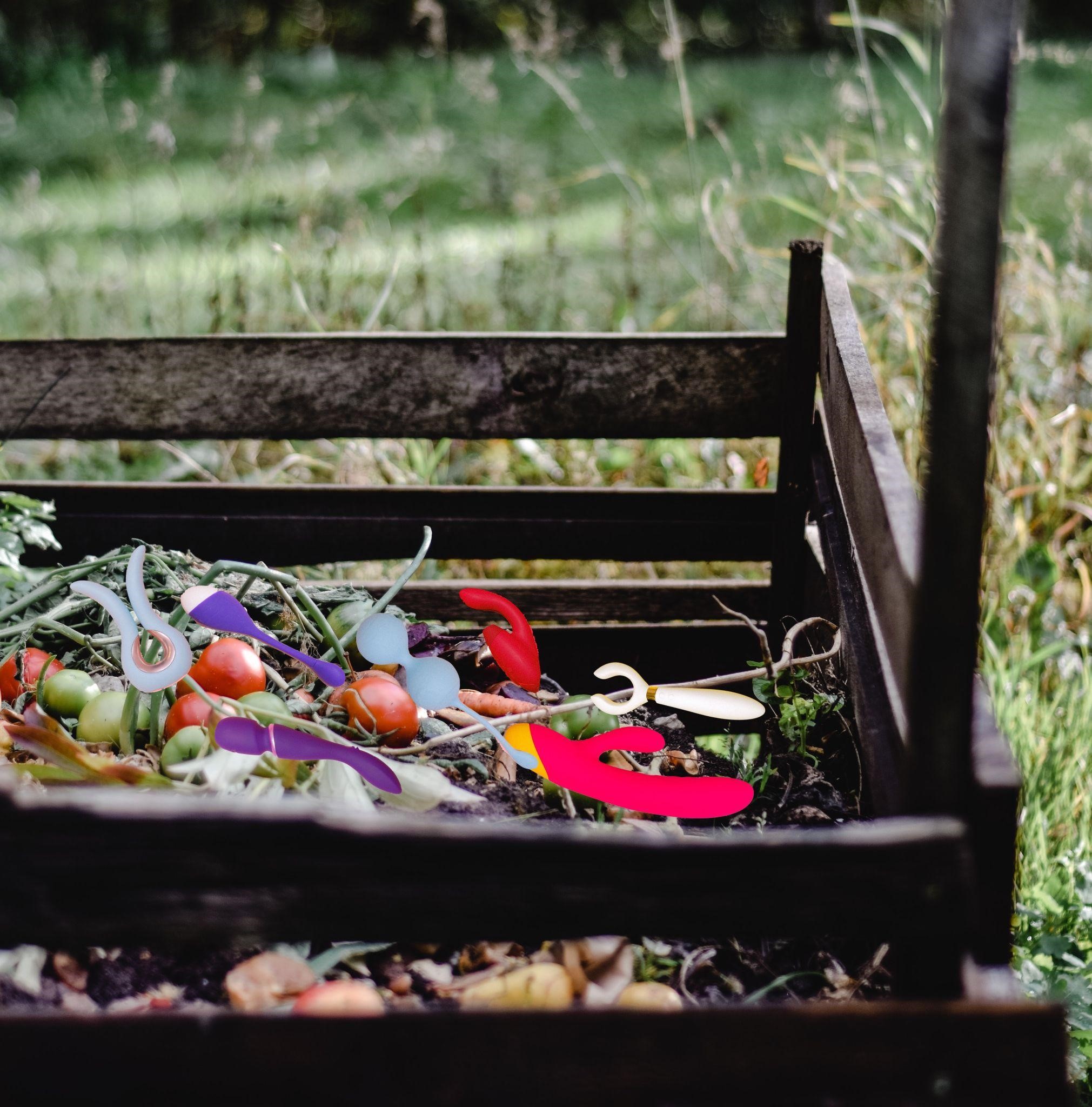
By: Anna Sweetland
Right off the bat, I need to confess that I don’t live the most sustainable lifestyle. I only learned a few months ago that plastic tampon applicators are bad for the environment. This discovery, along with many others, had me thinking twice about everything I own and reconsidering some of my most long-standing routines.
How much waste am I producing? Furthermore, how much waste is my sex life producing? Between condoms, lubes, sex toys, lingerie, and sexual hygiene products, we are each potentially generating a whole lot of non-biodegradable garbage. To address my growing eco-guilt, I did some research on how I can have a more sustainable sex life, and here are four things we can all consider:
1. Condom waste
Many of the most popular brand-name condoms are not made with fair-trade rubber, and this means they’re likely made with synthetic latex and other added chemicals that are not biodegradable or recyclable. The only entirely biodegradable condoms are made from lambskin; however, lambskin condoms do not protect against STIs.
Instead, brands like Glyde, Loveability, Sustain, and Ah! Yes offer condoms made from natural latex that can be composted within one’s own personal compost system. Additionally, retailers like these aim to use recyclable packaging.
That being said, I know very few students living on campus have their own personal compost system, so the best we can do is dispose of condoms responsibly in the trash and NEVER flush them down the toilet. Yes, it’s less likely the condom will entirely break down if you go this route, but condoms are a necessary evil. Just think, a single condom produces far less waste than treatment of an STI or having a whole ass child.
2. Petroleum-based lubes
Lube! If you don’t use it now, you probably will later in life, so it’s important to find the right brand of lubricant for you and also the planet. To provide a quick overview, most lubes are oil-based or water-based. Water-based lube typically includes more natural ingredients like aloe or flaxseed extract. Oil-based lubes, while easier to spread and slower to dry, can contain potentially harmful ingredients like glycerin and parabens as well as petroleum oils which will deteriorate condoms and your toys.
Aside from the effects that glycerin and parabens can have on the body — i.e. glycerin can contribute to vaginal yeast production and throw off the natural PH balance — petroleum-based lubricant is not great for the environment. Petroleum oils require petroleum extraction which commonly contributes to ocean waste as well as generates fossil fuels. There are still oil-based lubes that do not contain petroleum, so it’s possible to steer clear of petroleum-based lube entirely.
Brands like Good Clean Love, Sustain, and Sliquid all sell more sustainable water-based and oil-based lubricants; however, these companies and many others still use plastic non-recyclable packaging. For this reason, it may be good to use natural alternatives to commercial lubes such as aloe vera or coconut oil which are more common and easier to find in glass jars, or in the case of aloe vera, from the plant directly. I would just advise testing small amounts of natural lube alternatives on your genitals first in case you have any reactions (my vagina, for instance, hates coconut oil).
3. Sex toy recycling
If our sex toys break or they weren’t the right fit and it’s time to dispose of them, where do we put them? Definitely not the recycling bin; Tacoma’s recycling program doesn’t even pick up glass anymore so I doubt they would take my thrusting dildo. So, I guess the trash then? But if they contain batteries, plastics, and silicone, they likely won’t break down over time.
Fear not! There are companies specifically dedicated to the recycling of sex toys! I found a company in Portland OR called Scarlet Girl as well as a similar program in Atlanta, GA named Eden Fantasies. Both have sex toy recycling programs in which they will take donations from around the country and dispose of them properly for you. A sex toy recycling program in the U.K. said their donated old silicone dildos are recycled into a material to resurface roads and playgrounds!
Another option is purchasing a more eco-friendly sex toy from the get-go! There are toys made of recyclable materials such as glass or metal. A bonus with glass sex toys is that you can either place your glass toy in boiling water or the freezer before use for some added sensation. There are also companies like Womanizer who created an air pulse suction toy that is built with a biodegradable alternative to a plastic called Biolene — a bioplastic made from primarily corn starch. Their toys are also intentionally easy to disassemble and recycle when it comes time to do so.
4. Simpler changes
Additional tips for a sustainable sex life include reusable towels for post-sex clean-up as opposed to wet wipes, thrifting lingerie or toys for bondage play, and cutting down on the shower sex.
To be honest, I found all of this new information really overwhelming and if you feel similarly, know you’re not alone. It can be difficult changing our lifestyles, not to mention that a lot of sustainable alternatives are out of the typical college student’s budget. You don’t need to make all of these changes at once. Choose what might be the most achievable for you, and then start there. I think I am going to begin by making my own lube! No change is too small, everything has an impact. Don’t let the eco-guilt kill your boner, but rather, encourage some sexy reflection.
